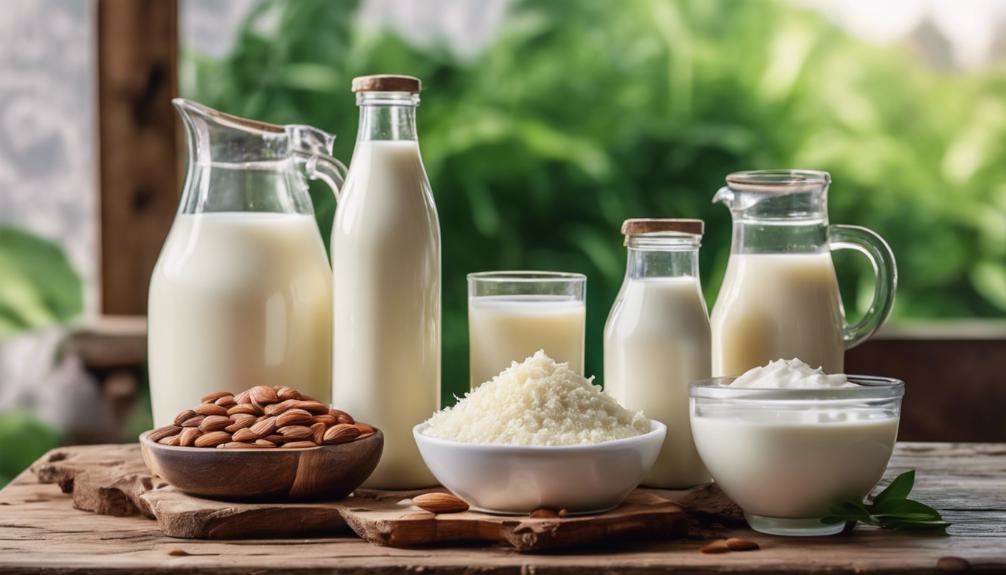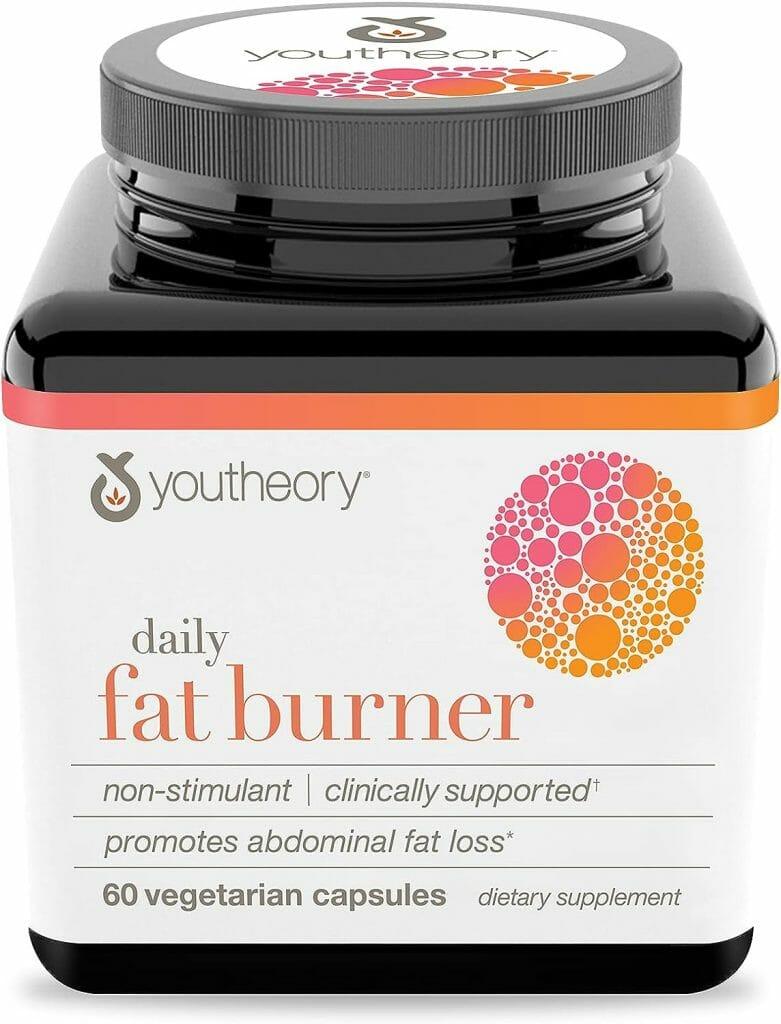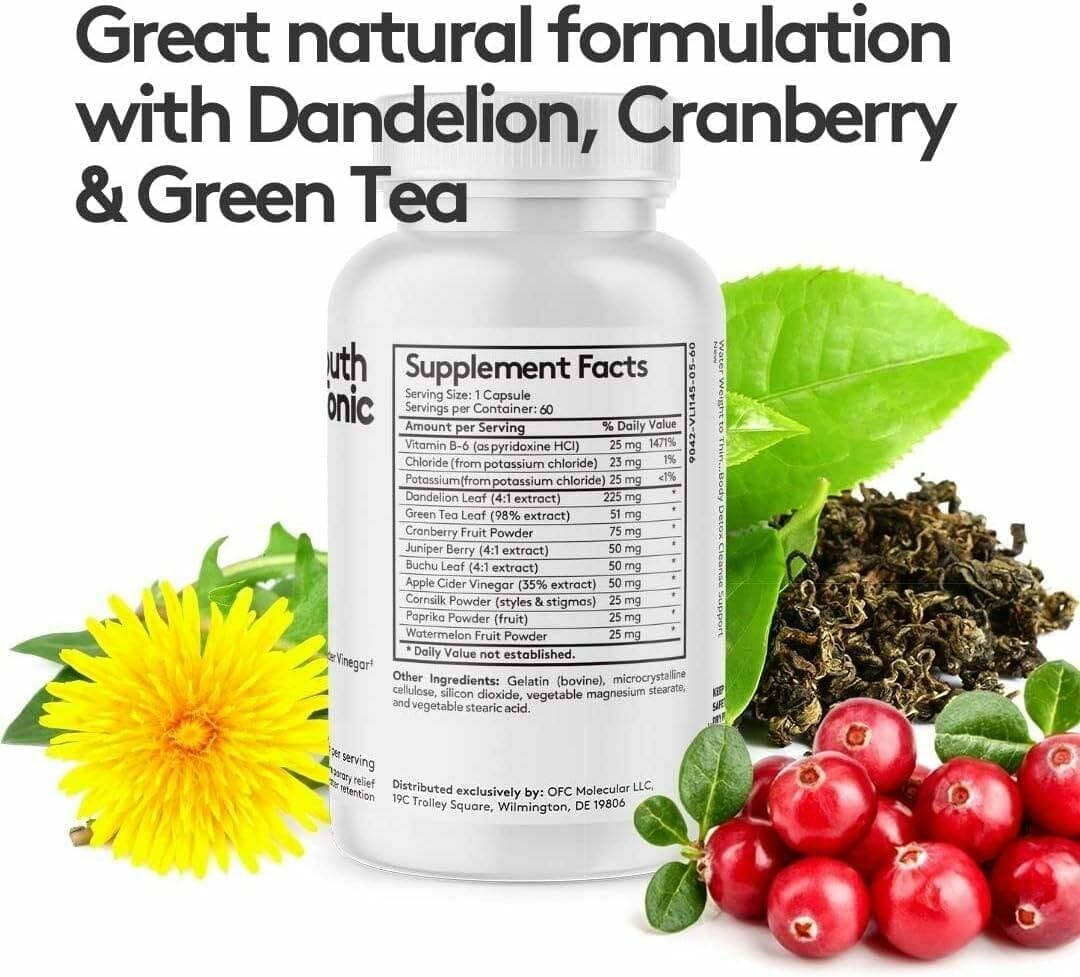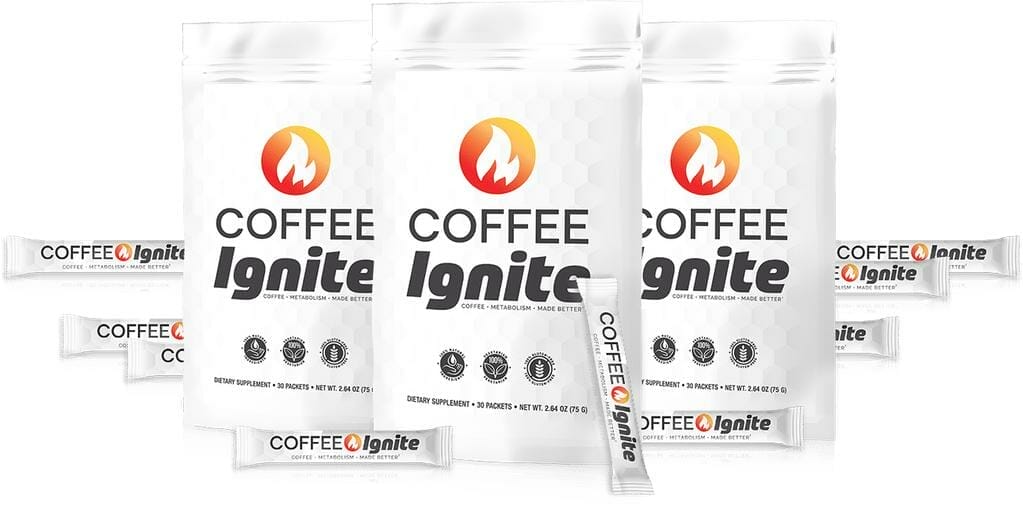In regards to animal milks, cow milk is top for protein and Vitamin B12 benefits. Essential for nerve function and health, it aids in energy and red blood cell formation. Goat milk, easier to digest and allergy-friendly, is high in Vitamin C and resembles human milk. Sheep milk, naturally homogenized, rich in conjugated linoleic acid and believed to have anti-cancer properties, suits those with digestive issues. All three differ in digestibility, impacting nutrient absorption and gut health. Goat milk is a go-to for allergies, while sheep milk might challenge lactose intolerance. Discover which milk suits you best for peak health.
Nutritional Comparison of Cow Milk
When comparing animal milks for their nutritional value, cow’s milk stands out with the highest protein content among them.
It also contains significant levels of vitamin B, specifically vitamin B12, which is essential for nerve function and DNA production.
These nutrients in cow’s milk play an important role in maintaining your overall health, supporting functions like energy production and red blood cell formation.
Unique Benefits of Goat Milk
Cow milk may be the nutritional powerhouse, but when it comes to unique benefits, goat milk has its strengths to offer. Goat milk is closer in composition to human milk, aiding in digestion. It lacks alpha lactoglobulin, a common allergen, making it suitable for those with dairy allergies. Additionally, goat milk contains higher levels of calcium, magnesium, and *Vitamin C*, making it a nutritious choice.
| Unique Benefits of Goat Milk |
|---|
| Easier to digest |
| Suitable for dairy allergies |
| High in Vitamin C |
Advantages of Sheep Milk

Sheep milk offers a distinct advantage in being naturally homogenized, making it a favorable choice for those seeking easier digestion compared to other types of animal milk.
Despite containing higher levels of lactose, which can be challenging for lactose-intolerant individuals, sheep milk is rich in conjugated linoleic acid, believed to have anti-carcinogenic properties.
These qualities make sheep milk a suitable alternative for those with digestive issues, promoting overall health.
Digestibility Differences Between Milks
Goat milk and sheep milk are often easier on your digestive system than cow milk, thanks to lower lactose levels and smaller fat globules. This difference can affect how well your body absorbs essential nutrients from the milk you consume.
Ultimately, the digestibility of these milks can play a significant role in impacting your gut health.
Milk Types and Digestion
When considering different types of animal milk, it’s essential to understand the varying levels of digestibility they offer. Goat milk, with smaller fat globules and lower lactose levels, is easier to digest than cow milk.
Sheep milk also boasts easier digestibility due to its composition and reduced lactose content. However, sheep milk contains higher levels of lactose, posing challenges for those who are lactose intolerant.
Nutrient Absorption Comparison
To compare the nutrient absorption of different animal milks, consider the varying levels of digestibility they offer based on factors like fat globule size and lactose content.
Cow’s milk, with larger fat globules and higher lactose levels, may be harder for some individuals to digest compared to goat or sheep milk.
Comprehending these differences can help you choose the best option for your digestive health needs.
Gut Health Impact
Selecting among different animal milks can notably influence your gut health because of variations in digestibility caused by factors like fat globule size and lactose content. Goat milk is easier on digestion due to smaller fat globules and lower lactose levels. Sheep milk, while also more digestible than cow milk, contains higher lactose levels. Both milks offer health benefits, but goat milk’s potential cancer cell inhibition properties make it a compelling choice.
| Animal Milk | Digestibility | Health Benefits |
|---|---|---|
| Goat Milk | Easier due to smaller fat globules and lower lactose levels | Potential cancer cell inhibition properties |
| Sheep Milk | More digestible than cow milk, higher lactose levels | Naturally homogenized, aiding in nutrient absorption |
Potential Allergies and Reactions
For those with dairy allergies, goat milk serves as a suitable alternative due to its lack of alpha lactoglobulin, a common allergen found in cow milk. Goat milk is believed to trigger fewer allergic reactions than cow milk, making it a potential option for individuals with dairy sensitivities.
However, be cautious with sheep milk, as its higher lactose levels may pose challenges for those who are lactose intolerant.
Quality Considerations for Dairy Products

When choosing dairy products, take into account the milk fat content and nutrient profile, as these factors significantly impact the quality and healthiness of the product.
Grass-fed or pasture-raised options often contain higher levels of essential vitamins and fatty acids, enhancing their superior quality and potential health benefits.
Being aware of the origin of your dairy products is essential, as some farmers may limit the use of pesticides and hormones, guaranteeing a higher quality product for you.
Milk Fat Content
Considering your dietary choices, understanding the milk fat content in dairy products can help you make informed decisions for your health. Whole cow’s milk contains around 3.5-4% fat, while semi-skimmed milk has about 1.5-1.8% fat. Opting for lower-fat dairy products can be beneficial, as they are often lower in calories and saturated fats. Plant-based alternatives like almond, soy, and oat milk offer notably lower fat content, making them a suitable low-calorie option.
| Dairy Product | Fat Content |
|---|---|
| Whole Cow’s Milk | 3.5-4% |
| Semi-Skimmed Milk | 1.5-1.8% |
| Almond Milk | Low fat |
Nutrient Profile
Having a grasp of the nutrient profile of various animal milks is essential for making informed and healthy choices regarding dairy products.
Cow’s milk boasts more calcium, protein, vitamin B12, and iodine than sheep and goat milk.
Goat milk shines with higher levels of calcium, magnesium, and Vitamin C.
Sheep milk, easier to digest than cow milk, contains conjugated linoleic acid with potential health benefits.
Frequently Asked Questions
Which Animal Milk Is Most Healthy?
When choosing milk, consider factors like similarity to human milk, digestibility, lactose content, and potential contaminants. Quality and production methods are vital. Opt for goat milk for a breast milk-like composition and fewer additives. Sheep milk’s homogenization aids digestion.
What Is the Healthiest Milk You Can Drink?
When choosing milk, opt for goat or sheep for health benefits. These options are similar to human milk and have higher nutrition. Consider quality by selecting grass-fed or pasture-raised products and knowing the source. Your health matters.
Which Type of Milk Has the Most Health Benefits?
When considering milk for health benefits, it’s essential to weigh the nutritional content and potential digestion issues. Goat milk’s similarity to human milk offers nutrients, while sheep milk’s natural homogenization aids digestion. Choose wisely for best health.
What Is the Healthiest Milk to Put in Your Coffee?
For the healthiest milk in your coffee, try almond or oat milk to cut calories and saturated fat. Want creaminess? Opt for soy or coconut milk. Need protein? Go for cow’s milk or a protein-fortified plant-based option.
Conclusion
To sum up, deciding on the healthiest animal milk for you is primarily determined by your individual nutritional needs and preferences. Cow milk provides a comprehensive source of nutrients, while goat milk offers distinct advantages and sheep milk showcases its own benefits.
Take into account aspects such as digestibility, potential allergies, and quality when making your choice. Don’t forget to seek advice from a healthcare professional or nutritionist for personalized recommendations tailored to your specific health goals.








Leave a Reply
You must be logged in to post a comment.